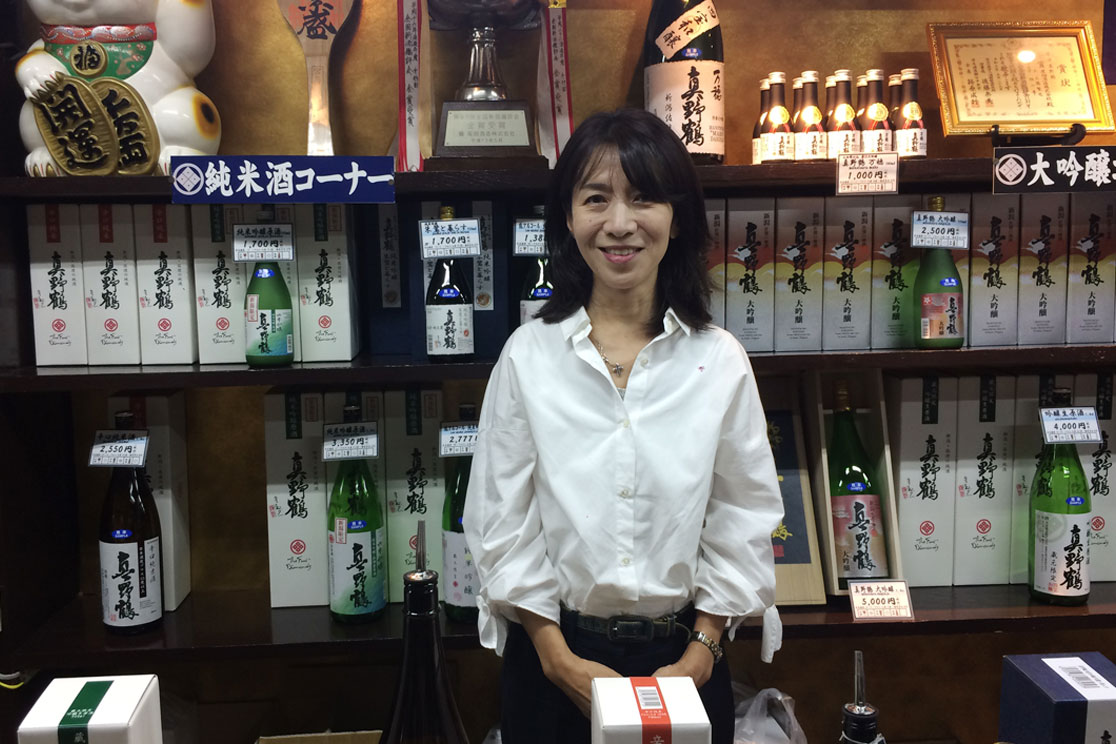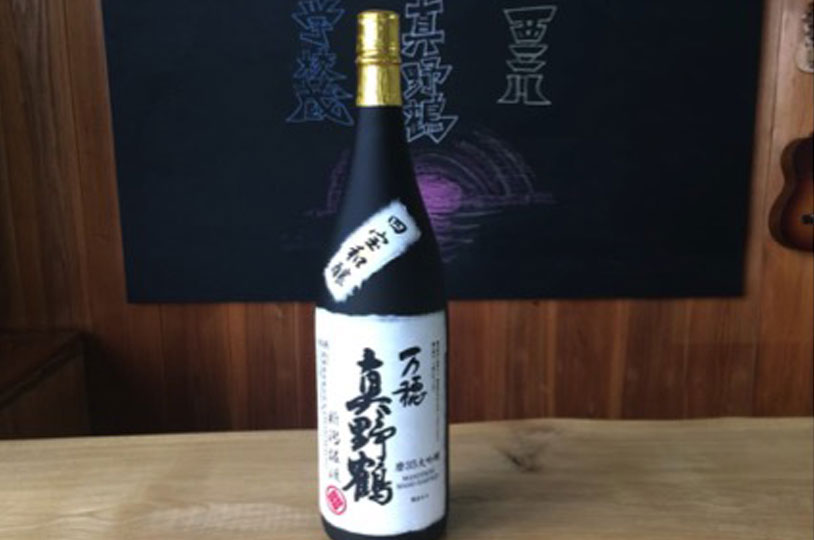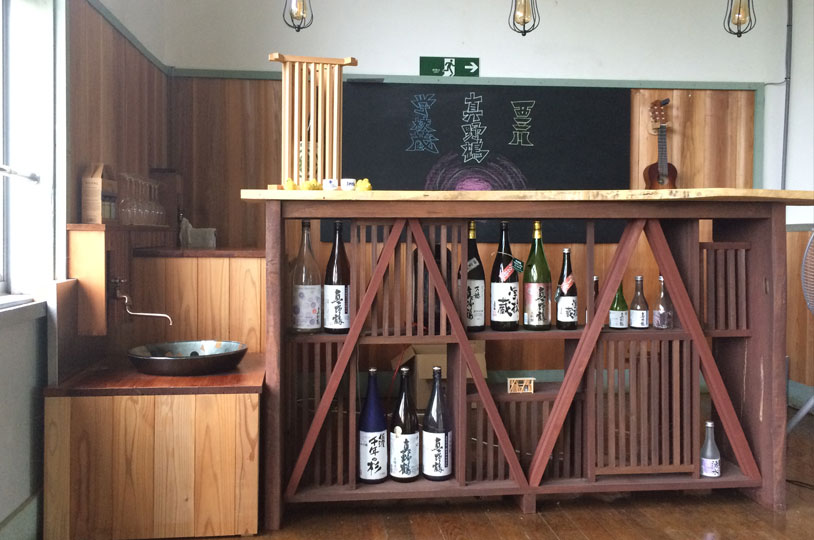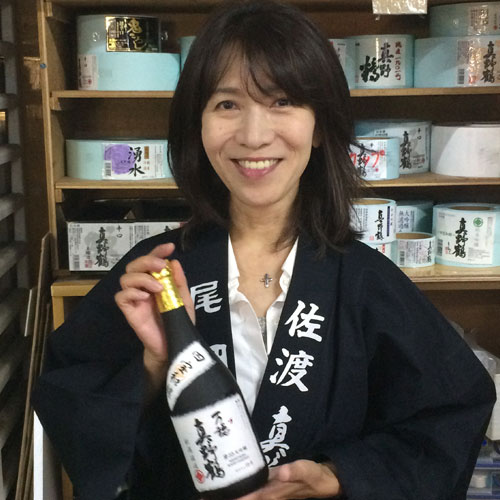A Marriage of Sake, Trust and Ecology: Rumiko Obata, 5th Generation Owner of Obata Brewery
Interview | 2020.03.31

Sado Island, off the coat of Niigata Prefecture, is a pretty remote spot. The final destination for exiles and troublemakers since Japan’s Middle Ages, this butterfly-shaped island still retains the quiet and remote atmosphere of yore.
During a recent visit I couldn’t resist a visit to the 147-year old Hokusetsu brewery (which brews sake for all Nobu restaurants around the world) and multi-award winning Obata brewery, where I was fortunate enough to snag some time with 5th generation owner Rumiko Obata to talk about sake, family businesses in Japan and the importance of community.
From Sado to the world
While Obata grew up in the sake world, watching her parents manage the laborious process of creating sake from Niigata and Sado’s famously prized rice, like many young Sadoans she dreamed of leaving the island to explore the world.
Inspired by Kaoru Kanetaka, a popular travel reporter during her childhood, as a girl her goal was to become a journalist herself and see the world, in order to share other cultures and countries with audiences back in Japan. She moved to Tokyo to study at Keio University, and then found another way of sharing different worlds with audiences by entering Nippon Herald Films.
For years she lived the high-paced life of a movie industry publicist, promoting new movies every three months, meeting actors and directors, traveling to Los Angeles for business and making the most of big city life in Tokyo.
Obata says that at the time she had no plans to take over the family business. However, this changed at the age of 28, when her father became seriously ill. While he later recovered and is still involved with the business, it was a watershed moment for her. “It got me thinking: how would I want to spend my last moments? How do I want to be remembered?” she says pensively, “I then realized that all I wanted to do was to sip sake in my family kura. I needed to return to my roots.”
The following year she packed up her life in Tokyo and, with husband Ken Hirashima (who is now the president of the brewery) in tow, headed back to her native island.
She has no regrets about returning to Sado: “I was returning by choice, to do the work I knew I wanted to do for the rest of my life.” While the transition from Tokyo to the quiet life on the island was relatively smooth, one thing she did notice was the difference in how she experienced time and the pace of her new work.
“Going from the movie industry, where you always have several movie promotions in the works on tight three-month cycles, moving to the one-year cycle of creating sake was something of a shock. The process of harvesting the rice in the autumn, making sake during winter, then bottling and shipping out the year’s product, everything is linked with the seasons.” With a laugh, she remarks that it probably took her 10 years to fully readjust to this slower pace attuned with nature.

Bringing Sado’s sake to the world
Besides adjusting to the new business, Obata found herself taking over sales during a downturn in the sake industry. For the first five years after returning to Sado she found herself fighting an uphill battle, until interest in Japan’s national drink started returning in 2001.
Not one to make excuses or sit on her laurels, in 2003 she started working towards making a new dream come true. During her time in the film business she saw large commercial brewery’s sake served at Hollywood events, and wanted to see her family’s craft brews there instead. She decided to work on finding new markets for sake by building a network of new potential nihonshu lovers internationally.
Starting up exports was not smooth sailing, as the direct importers she worked with would suddenly close down shop or sometimes not pay out, and it took several years and referrals until she finally found the companies she now relies on to sell their Manotsuru sake in 15 countries. While the drink has gained popularity worldwide, Obata says that at the moment the biggest markets for their smooth rice wine are the United States and Hong Kong, and notes with pride that it is also served in Air France’s first and business class. She has also succeeded in bringing some curious sake seekers to the island, and if you visit their main shop in Sado, you will see a stream of international visitors stopping by the brewery to taste, shop and learn about the brewing process.

All in the family
Sake making has something of a macho image, so one might assume women might face some challenges when entering the sphere, but Obata points out that in Japan being part of a family business is actually an avenue for women to shine, as family ties trump all other considerations.
Japan has the largest number of companies that have been in business for over 100 years in the world, and many of these are small- to mid-sized family businesses like the Obata Brewery. She is passionate about family business, and how deeply they connect with the local communities, explaining that in her world it is all about “hyoka yori hyoban” (reputation over ratings), and that there are motives beyond productivity that make the work worthwhile. She likens it to the process of going to school and learning, which is not a straightforward path but is the gate to new discoveries.
It is this passion for education and using sake to bring together community that inspired her to take over a 140-year old middle school, which had been closed due to lack of students, and turn it once again into a center of learning. Besides popular 1-week sake making courses, which sell out in a matter of days and attract a majority of non-Japanese sake lovers, the wooden halls and retro classrooms of her Gakkokura also play host to seminars and talks (for instance one in June about how to continue to grow in a depopulating society), display intricate wooden furniture created by students of the Shibaura Institute of Technology, and host tastings for visitors from around the world.
Combining the best of tradition with new ideas is part of the brewery’s ethos, so while the 27-person business maintains the best traditions regarding the brewing process and using 100% Sado-grown rice, they are also open to new ideas, such a producing and using 100 percent solar power to run their operations or opening up the secretive world of sake to those who wish to learn.
Obata’s goal is to use sake as a way to promote her native island, making people curious about how the smooth, complex flavors are influenced by the nature, culture and tradition of Sado. Each bottle and sake-making class brings her one step closer to making her ambitions a reality.

Rumiko Obata
SUPPORT CONTENTS
-

-

-

- Harigoma & Noroma PuppetPerformances
- Evening Illumination at Kitazawa Flotation Plant Historic Ruins(Sado Gold Mine)
- Fair in OgiShopping Street
- Takigi Noh Performance (Tenryo/Ryotsu, Sado)
- With World-Renowned Kodo:“Sado, Treasure Island of Performing Arts”
- Takigi Noh Performance (Nikuu Shrine, Sado)